Published: 22 February 2019
‘I have great faith,’ wrote the American naturalist and philosopher, Henry David Thoreau, ‘in a seed. Convince me that you have a seed there, and I am prepared to expect wonders.’
We live in troubled times. Our leaders no longer lead, our churches are half-empty, our notions of law and loyalty upended. Our bibles have glass covers: they offer Twitter, Facebook, Instagram. No parables. We seek redemption in things, in appearances, in ‘likes’. But few of us profess a faith, any portal to wonders.
All right for Thoreau, we might say, out there on Walden Pond, walking in the forest for hours each day, blissfully alone but for trees and leaves. Thinking and writing. But even Thoreau found the notion of faith a vexed one – during his life America was assailed by the atrocities of slavery and the Civil War, and challenged by Darwin’s new claims against god. He lived in troubled times too.
Such times need guides. Humans have a deep need not just to be led, but for distraction, for reassurance, for the consolation of blame. If guidance no longer comes from government or church, we will find it elsewhere. Often this has been one powerful and charismatic source, an entity that will spirit away our troubles and ills. That promises rewards to believers.
How else do we explain the cruel sideshow that has been the Trump presidency? Or the cults of Jim Jones and Charles Manson? A whole nation’s adoration of Hitler or, further back, the countless slaves in thrall to Spartacus? Such figures emerge in atmospheres of fear and volatility, and magnetise followers with a kind of heroic presence, vision and authority that is mythic, or romantic. Their power is not traditional power, but taps into the unmet needs of the downtrodden or suffering.
Sometimes, in their suffering and need, people will mistake this power for authenticity. Followers might feel an almost sacred calling that, with hindsight, is often revealed as naïve, self-serving, dangerous. We might wonder at the Trump ascendancy but in truth, the centuries have produced countless forerunners of it. We get the leaders we deserve, some say.
And who would argue the slaves did not deserve Spartacus? A true hero, his power and courage undeniable. He was, some say, kind to his men, generous. But we also know that, like other such leaders, he appealed to masses who had been forgotten, had suffered and lost, had lost faith. Had nothing left to lose.
We can only be certain of this: when people are anxious and uncertain and in pain, they are drawn to charismatic voices. They look to them for the leadership they craved but haven’t found, a repository for their faith. Or, perhaps, a salve for their own hurts and slights, the prejudices some call beliefs.
“In the woods, we return to reason and faith. There I feel that nothing can befall me in life – no disgrace, no calamity… which nature cannot repair.” Ralph Waldo Emerson
Faith. In the 21st century, the word is rarely spoken. Confusion and embarrassment attend it. The noun is hard enough, but the adjective? It is most often attached to marriage, or an old-fashioned pledge. Faithful: unfailingly loyal, unceasingly devoted. Unfaithful: adulterous, fickle, treacherous.
When we do speak of faith, our voice is often rimed with irony – the naïveté of it, the innocence. To have faith implies making a promise, after all, and keeping it, or applying a steady devotion. Or the chance of redemption. Notions out of fashion in our era (though who would – secretly – not accept them, if they were offered when we needed them?). No, we are self-conscious about the very word.
Instead, we use it for pets, or friends, and sometimes for music, applauding a faithful rendition or translation. And in doing so mistake it, utterly, for a different emotion or intention. Most often for trust, or belief, or hope. Or blind attachment. Or desire, perhaps: faith is so often tied to want, isn’t it? What we want to have, want to be, or want to happen. We’ve become adept, most of us, at a deep kind of magical thinking, one that harks back to who we vote for, who we follow, and what we will do in their service.
The British philosopher and Eastern scholar, Alan Watts, had a deep understanding of this and wrote expansively about faith – and about belief, its near and distant cousin. What each word represented, where each began and ended. In Watts’ mind, someone’s possession – or profession – of belief meant that, while they were open to the truth, this held only as long as it fitted their own preconceived ideas and wishes.
In other words, belief means a closed mind: a believer wants their own wishes, desires and needs verified and delivered. They want the truth only if it is their truth. Come what may.
Faith, on the other hand, implies an unreserved opening of the mind to whatever the truth might turn out to be. Faith, according to Watts, has no preconceptions. It is a plunge into the unknown, where all sides are confronted, including notions and issues that might be repugnant, or antithetical to your own thinking. To have faith is to remain on the path, to remain faithful to inquiry, to the questions at the heart of life. The uncertainties and changes.
Belief clings, according to Watts, where faith lets go. This quality of faith is “the essential virtue of science, and of any religion that is not self deception. We cannot confuse ‘faith’ with a clinging to certain ideas.”
“It is as if I always met in those places some grand, serene, immortal, infinitely encouraging, though invisible, companion, and walked with him.” Henry David Thoreau
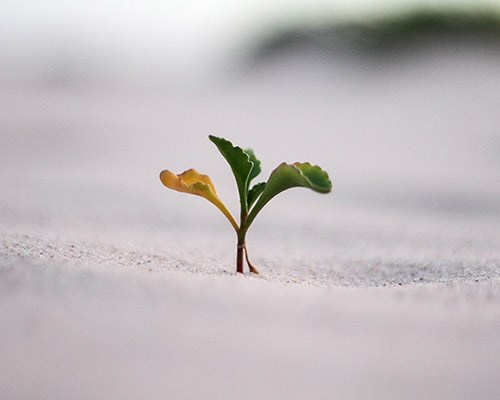
Image: Unsplash
We do not need to go as far back as Spartacus to find examples of people establishing their own orders of faith. In the 19th century, Henry David Thoreau and Ralph Waldo Emerson found not just solace in the natural world, but an answer to their faith-based questions. As a pastor, Emerson struggled – as did the poet Emily Dickinson – as Darwinism made inroads on traditional views of creation. In their homes and churches they remained subdued, but on the page, and outside, in forest and field, alone in the natural world, their struggles dissipated before the overwhelming evidence. Thoreau, like Emerson and Dickinson, spoke of nature as others might speak of god.
This century’s nature writers share this sensibility. Robert Macfarlane, Rebecca Solnit, Barry Lopez, Rachel Carson, Loren Eiseley: all make links between the human and the sublime in nature, our origins in the natural world, and the connections between humans and the elements. It was Carson, of course, who first alerted us to the looming catastrophe triggered by our abuse and misuse of soil and water, the staggering effects of our own population growth and our disregard of animal and plant populations.
Her seminal works, The Sea Around Us but especially Silent Spring are widely credited with pushing the American environmental movement into being, and concentrated attention on the debilitating effects of chemicals and pesticides. Reading Carson, it is easy to understand our pull to nature as faith-based.
“Our origins are of the earth. And so there is in us a deeply seated response to the natural universe, which is part of our humanity.” Rachel Carson
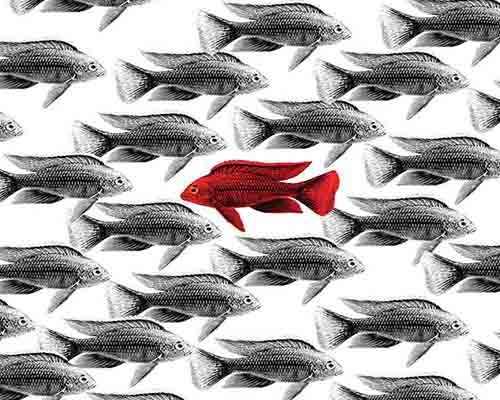
Image: Getty Images
Summarising the countless letters written to her by ordinary people, Carson said: “We have been troubled about the world, and had almost lost faith in man; it helps to think about the long history of the earth, and of how life came to be.” Her light touch and elegant writing belie the profound message in that single sentence: we have an ingrained faith in the earth, in the land, because we are of it. We all share a common ancestry. Humans, animals, trees, the stars, the soil. Our pasts and our futures are bound up together.
For inspiration Carson herself looked, of course, to the seas and the continents, but also to the words of other writers, including the formidable talents of Loren Eiseley, the American anthropologist and writer whose books, including The Immense Journey, urged readers to “reconnect with our animal past” and to respect the natural world “from which we came”. For her, Eiseley had a “visceral awareness of our creaturely nature”.
Their words have been echoed by the great nature writer Barry Lopez: “The great temptation of our time,” he writes, “is to put one’s faith in despair….” Instead, he urges, “have faith in the natural world.” And the Scottish writer Robert Macfarlane takes it further: in his book The Old Ways we pass with him through spectral landscapes, ghostly, across borders of time and memory that suggest former lives. It tracks place and path as palimpsests, haunted by what lies beneath. No wonder the Scottish Review of Books described the book as “a secular reading of faith”.
“The wild,” Macfarlane has said, “hones our faith. For those of us without religion… we find our values, our hereafter, our happiness in the rhythms… of the natural world.”
The wild, the path, the natural world. And us. We are all part of the one big question being endlessly asked. Who? Why? How? Like Thoreau, we have no unimpeachable answers. Just a seed. No promises. But an expectation – a faint hope – of wonders.
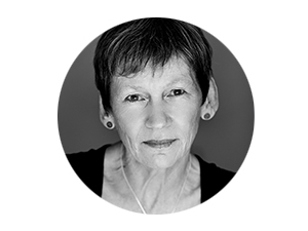
Kristina Olsson
Kristina Olsson is an award-winning writer of fiction, nonfiction and journalism. Her 2013 memoir, Boy, Lost, garnered multiple national awards and her new novel, Shell, was chosen as the first title in Scribner’s new Australian literary imprint. Kristina’s previous work includes the novel The China Garden and the biography Kilroy Was Here. She also works as a mentor and teacher of creative writing and is currently working on a new work of narrative nonfiction. She lives in Brisbane.
You May Also Like
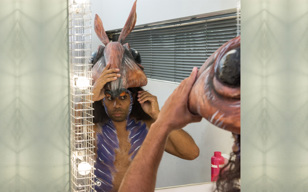
Behind the Scenes
Our Behind the Scenes series takes you on an exclusive journey into the heart of QPAC, where the magic of the stage comes to life.

Projects and Events
QPAC is a creative hub where communities come together to celebrate, learn, and grow through the transformative power of the arts.
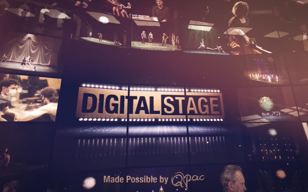
Digital Stage
On-demand performances, live streams and behind-the-scenes.
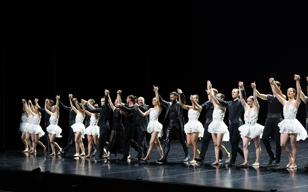
Support
Support QPAC to help nurture and celebrate Queensland's rich artistic heritage while fostering innovation and creativity for the future.


